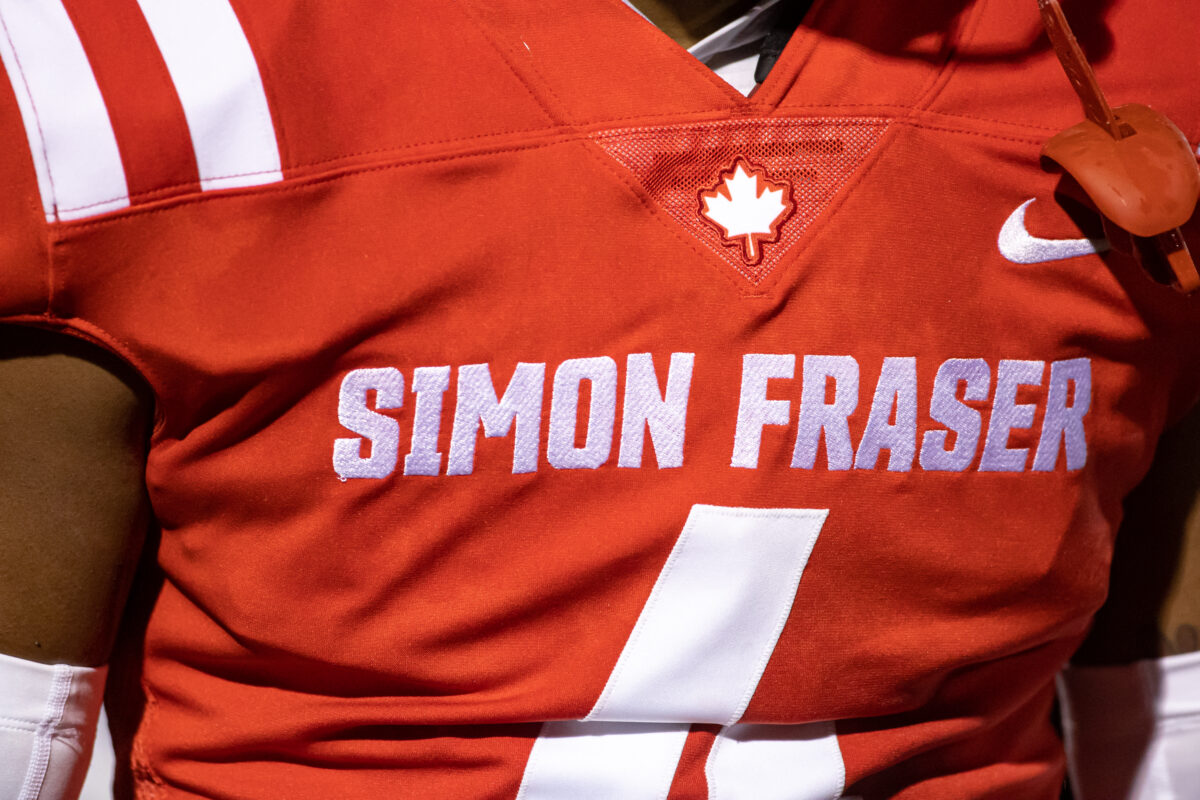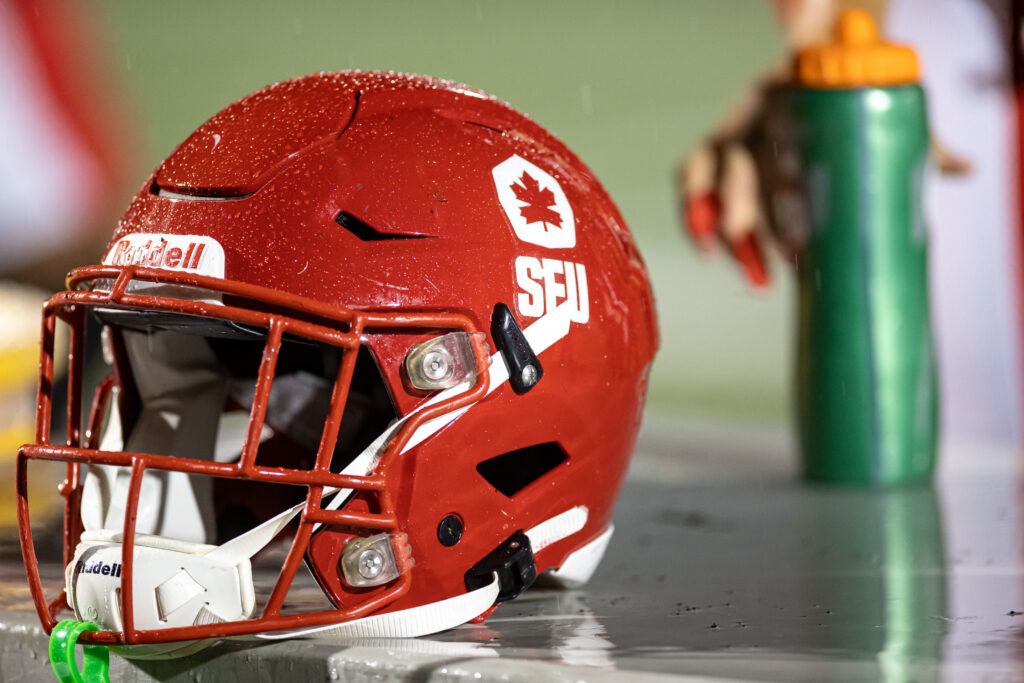
Bob Mackin
A report published Sept. 19 about the feasibility of reopening the football program at Simon Fraser University said the Red Leafs have no future in an American league.
But if the April-cancelled team does return to play against Canadian universities, a consultant concluded that competition atop Burnaby Mountain is unlikely before 2025.
After spring training camp, SFU administration suddenly sacked the 1965-founded team instead of letting it play its last season in the NCAA Division II Lone Star Conference. The Texas-based league had decided not to extend SFU’s membership beyond 2023 and athletics department executives claimed they did not have enough players to field a competitive squad for another losing season.

Bob Copeland (McLaren Sport Solutions)
Players unsuccessfully appealed to the B.C. Supreme Court and campaigned to join the U.S.-based NAIA or Canadian U-Sports circuit or play an exhibition schedule this fall. The SFU Football Alumni Society even raised $3 million in pledges, contingent upon the team’s return.
SFU President Joy Johnson did not budge. As an olive branch, she retained Bob Copeland of McLaren Global Sport Solutions in May as a special advisor. Athletics director Theresa Hanson, who spearheaded the decision to close the program, left SFU Aug. 2 by mutual agreement, according to vice-provost Rummana Khan Hemani.
In his 136-page report, Copeland said continuing a football team that is not competitive in a U.S. league is inconsistent with four of the SFU athletic department’s five pillars from its 2022 strategic mandate, including student-athlete success, reputation, organizational culture and financial sustainability. He found that NCAA membership rules preclude Division II member SFU from moving up or down a division. The NAIA, SFU’s former league, is also not a viable option.
“SFU football has the potential to build a competitive and sustainable program in Canada through membership in Canada West and U Sports,” Copeland wrote. “This emerged as a strong theme amongst SFU football alumni and many others who consider Canada West and U Sports to be the optimal fit for SFU football.”
However, it would not be without obstacles.
“Membership rules in Canada West and U Sports preclude membership in only one sport. As a result, SFU must initiate an application and request an exemption from existing rules. Such an exemption would require two-thirds support from U Sports members and seventy-five percent support from Canada West members. Any alternative to a one-sport exemption would require SFU to repatriate some or all of its NCAA varsity sports to U Sports.”
Moving to the domestic league would not be cheap. Copeland said one-time U Sports and Canada West conference application fees total $368,000, which may be prohibitive at a time when the athletics department is running a deficit. External fundraising or a budget boost from the university would be necessary.

(SFU Football)
“If an application to Canada West and U Sports is successful, a return to play earlier than 2025 is highly unlikely given the rigorous application requirements and timelines outlined in the new member application processes set forth by both organizations,” he wrote.
Application fees are not the only challenge. Bureaucracy and logistics are another matter. Copeland said it would be inefficient for SFU football to enter U Sports while all other varsity sports remain in NCAA Division II.
“Student-athletes would be subject to markedly different rules and opportunities which has the potential to negatively impact culture within the department,” he wrote. “Program equity concerns about how varsity sports are supported at SFU emerged as an important theme amongst staff and this must be carefully considered as it relates to how football is supported and operated moving forward.”
Additionally, Terry Fox Field would require major alterations to accommodate a larger Canadian football field, which would then force removal or reconfiguration of the surrounding running track, thus impacting the SFU track and field teams.
Copeland also found that the Department of Athletics and Recreation operations are not sustainable, which is consistent with a 2022 Deloitte benchmarking report. Its capacity to support and service all student-athletes’ needs, including medical, academic and scholarships “has been stretched in recent years” according to both department staff and varsity athletes. Almost 60% of football players polled called their experience as a student-athlete at SFU “average” (18%), “poor” (29%) or “terrible” (18%).
Copeland concluded that collaborative funding from the university, student fees, alumni, businesses and the community would be the most sustainable approach for SFU football, which cost $1.056 million to operate last year.
“Base funding through SFU including student ancillary fees can be augmented through private donations and more aggressive fundraising targets including sponsorship and other forms of business development.”
Support theBreaker.news for as low as $2 a month on Patreon. Find out how. Click here.











